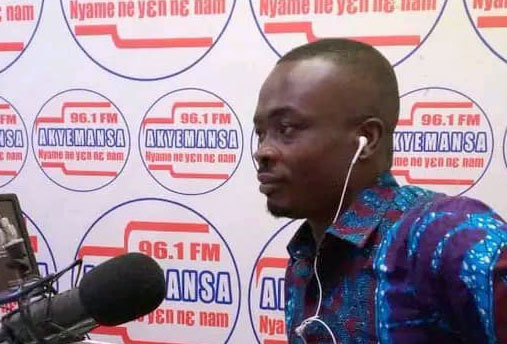Abuja, November 13, 2023—Ghanaian authorities must swiftly complete their investigation into the soldiers who attacked and detained journalist Nicholas Morkah last month and hold the perpetrators to account, the Committee to Protect Journalists said Monday.
On October 19, six soldiers attacked and beat Morkah, a morning show host with the privately owned Akyemansa FM broadcaster, after Morkah began filming the soldiers attacking a man in the Birim Central Municipal District of Ghana’s Eastern Region, according to a report by the privately owned Modern Ghana news website and Morkah, who spoke by phone with CPJ.
After noticing Morkah was filming, a soldier approached the journalist, grabbed his shirt by the neck and began to hit him, demanding to know why Morkah was filming. Morkah said five other soldiers then joined in hitting and kicking him all over his body, even as he told them he was a journalist.
“Authorities in Ghana must ensure that those responsible for beating journalist Nicholas Morkah are held accountable,” said Angela Quintal, CPJ’s Africa program coordinator, in New York. “Ghana’s leadership have so far failed to take the necessary actions to ensure security forces do not perpetrate violence against journalists.”
The soldiers seized Morkah’s cell phone, forced him into their van, and then hit Morkah with his motorcycle helmet at least five times before driving the journalist to their local barracks, where they erased everything on his phone by resetting it. They also accused the journalist of offending them.
While at the barracks, a senior officer requested that Morkah provide a contact for Yaw Yeboah, Akyemansa FM’s manager, then called Yeboah, informed him of Morkah’s arrest, and said the outlet would be prevented from covering future military events, Morkah told CPJ. Officers at the barracks also found Morkah’s second phone and searched it, Morkah said.
Officers then took Morkah to the local police command, where officers interrogated him, handed him a document alleging he had committed “offensive conduct,” and made him write a statement about the incident on that document.
Morkah said the officers released him the same day without charge on administrative bail for which he had to provide a surety and verbal assurances that he would be available for further questioning. He returned the next day and retrieved both of his phones.
After his release, Morkah said he went to a hospital where he was given medication for severe pain in his knee, back, and head, as well as cuts on his lips and head from the attack. Morkah said the cuts have healed, but added he was still in pain more than a week later.
Morkah filed a police complaint on October 23 and Akyemansa FM wrote to the National Media Commission, which is a national media regulator, the Ghana Journalists Association, a local trade group, as well as officials with Ghana Armed Forces and the Information Ministry, according to Morkah and the privately owned Joy Online news website.
According to a statement by the Ghana Journalists Association provided to CPJ, the Ghana Armed Forces expressed “readiness” to investigate the incident and hold those responsible to account. CPJ contacted Ghana Armed Forces’ director of public relations, Micheal Addo Larbi, at a phone number and email address he provided, but he did not respond.
Information Minister Kojo Oppong Nkrumah, who owns the broadcaster where the journalist works, told CPJ that the armed forces were indeed investigating and promised a report would be out “soon.” The journalist said he had been questioned in the investigation.
CPJ reporting has identified a “broad pattern of impunity” in attacks on the press in Ghana, including by security forces.
